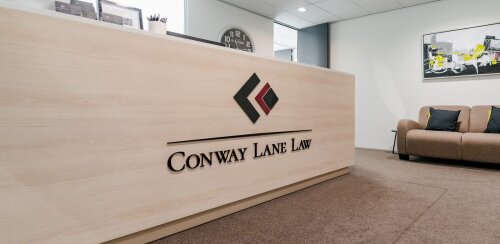Best Antitrust Lawyers in Rangiora
Share your needs with us, get contacted by law firms.
Free. Takes 2 min.
List of the best lawyers in Rangiora, New Zealand
1. About Antitrust Law in Rangiora, New Zealand
In Rangiora, as in the rest of New Zealand, competition law aims to keep markets fair and open. The primary statute is the Commerce Act 1986, enforced by the Commerce Commission. This law targets anti-competitive conduct that harms consumers or small businesses in Canterbury and nationwide. Official guidance explains that practices like price fixing, market sharing, and collusion are illegal under Part II of the Act.
The Fair Trading Act 1986 also plays a crucial role by prohibiting misleading or deceptive conduct in trade and other unfair business practices. Taken together, these laws shape how local businesses operate, negotiate, and compete in Rangiora markets, from farming supply chains to retail and professional services. For the updated text of these laws, see official NZ legislation resources and the Commerce Commission’s guidance.
Local residents seeking clarity should understand that competition law is national, but enforcement happens locally through Commerce Commission investigations and Canterbury court proceedings when needed. If you are negotiating a merger, bidding for a local contract, or facing a suspected breach, you will want specialist advice tailored to Rangiora’s business environment.
Key resources include the Commerce Commission’s overview of competition law and the official statute texts on Legislation NZ. See the cited sources for current rules and recent updates relevant to Rangiora businesses and residents.
Cartels are illegal under the Commerce Act 1986 and enforcement is carried out by the Commerce Commission.
Source: Commerce Commission
Commerce Commission - official site
Commerce Act 1986 - legislation.govt.nz
Fair Trading Act 1986 - legislation.govt.nz
2. Why You May Need a Lawyer
Here are concrete, real-world scenarios in Rangiora where a solicitor or legal counsel with antitrust expertise can help. Each example reflects typical local business activities and procurement practices.
- You suspect a local supplier group in Canterbury is coordinating price increases for essential farm inputs. A solicitor can assess potential breaches of the Commerce Act 1986, advise on evidence collection, and negotiate with authorities if needed.
- Your company plans a merger or acquisition in Rangiora that could lessen competition in a Canterbury niche market. A competition law solicitor can run a pre‑merger review, prepare a filing to the Commerce Commission, and structure the deal to mitigate risks.
- You received a formal notice from the Commerce Commission alleging anti-competitive conduct in a tender process for regional public works. An antitrust lawyer can explain the investigation process, preserve privilege, and represent you in negotiations or hearings.
- You are a small business owner in Rangiora accused of exclusive dealing with a supplier to foreclose competition. A lawyer can assess whether the conduct breaches the Act and advise on permissible arrangements or remedies.
- You are negotiating a distribution agreement with a Canterbury retailer that could resemble market allocation or restrictive practices. A solicitor can draft compliant terms and review potential anti-competitive effects.
- Your business is responding to a proposed regulatory investigation into price discrimination or collusive bidding practices. An experienced antitrust solicitor can guide you through disclosure, compliance remediation, and potential settlements.
3. Local Laws Overview
New Zealand competition law applies nationwide in Rangiora, but enforcement and guidance come from national bodies. The two main statutes you should know are:
- Commerce Act 1986 - Prohibits anti-competitive agreements and practices that lessen competition in a market. This includes price fixing, market sharing, and collusive tendering. The Commerce Commission enforces breaches, and penalties can be significant for corporate offenders. Commerce Commission provides practical guidance and case summaries.
- Fair Trading Act 1986 - Prohibits misleading or deceptive conduct in trade, unconscionable conduct, and other unfair practices. It complements the competition provisions by protecting consumers and business partners in Rangiora. For the text and updates, see legislation.govt.nz.
New Zealand routinely updates competition and consumer protection rules to reflect market changes and digital platforms.
Source: Commerce Commission and NZ Legislation
4. Frequently Asked Questions
What is antitrust law in New Zealand?
Antitrust law in New Zealand refers to competition law under the Commerce Act 1986. It prohibits anti-competitive agreements and practices that lessen competition in a market.
How do I know if my business conduct is illegal?
You should consult a solicitor when there is potential collusion, price fixing, market division, or exclusive dealing that could lessen competition. An early assessment helps prevent breaches and penalties.
When should I contact a competition lawyer in Rangiora?
Contact a local solicitor if you face a regulatory inquiry, potential breach notice, or a merger that may raise competition concerns in Canterbury.
Where can I find official guidance on these laws?
Use the Commerce Commission website and NZ Legislation pages for authoritative guidance and current law texts.
Why might a merger trigger antitrust review?
Mergers can reduce competition in a market. The Commerce Commission assesses whether a deal may lessen competition and may require remedies or block the merger.
Can I still negotiate a contract with restricted terms?
Yes, but terms must be carefully drafted to avoid restricting competition unlawfully. A competition lawyer can review, revise, and advise on permissible arrangements.
Should I hire a local Rangiora solicitor or a national specialist?
Local knowledge is valuable for Canterbury markets, but you should prioritize expertise in NZ competition law and regulatory procedures, regardless of location.
Do I need to go to court or can matters resolve through negotiation?
Many antitrust matters settle through negotiations, consent orders, or binding undertakings. A lawyer can negotiate on your behalf and reduce litigation risk.
Is there a time limit to respond to Commerce Commission actions?
Yes. Investigations have procedural timelines, and early legal advice helps preserve rights and privilege during investigations.
How long does a typical antitrust investigation take in NZ?
Investigation timelines vary widely. Some matters resolve in months, while complex cases may take a year or more, depending on evidence and scope.
What costs should I expect for Antitrust legal services?
Costs depend on complexity, duration, and the lawyer’s fee structure. Ask for an upfront engagement letter with estimated hours and milestones.
5. Additional Resources
- Commerce Commission - national regulator enforcing competition and consumer protection laws; provides guidance, case studies, and enforcement updates. https://www.commerce.govt.nz/
- New Zealand Legislation - official repository for current versions of statutes including the Commerce Act 1986 and the Fair Trading Act 1986. https://legislation.govt.nz/
- Ministry of Business, Innovation and Employment (MBIE) - government guidance on competition policy, business regulation, and procurement practices. https://www.mbie.govt.nz/
6. Next Steps
- Identify your issue clearly and gather all relevant documents, contracts, and correspondence related to the matter.
- Search for a Rangiora or Canterbury-based solicitor with a proven track record in competition law and regulatory investigations.
- Contact 2-3 law firms for an initial consultation to discuss your facts, potential claims, and expected timelines.
- Ask about fees, billing structure, and whether the firm offers fixed fees for specific tasks or retainers.
- Ask for a written engagement letter outlining scope, deliverables, and key milestones with estimated timelines.
- Share your documents with the chosen solicitor and request a preliminary assessment and action plan.
- Agree on communications and a plan for ongoing updates as the matter progresses.
Lawzana helps you find the best lawyers and law firms in Rangiora through a curated and pre-screened list of qualified legal professionals. Our platform offers rankings and detailed profiles of attorneys and law firms, allowing you to compare based on practice areas, including Antitrust, experience, and client feedback.
Each profile includes a description of the firm's areas of practice, client reviews, team members and partners, year of establishment, spoken languages, office locations, contact information, social media presence, and any published articles or resources. Most firms on our platform speak English and are experienced in both local and international legal matters.
Get a quote from top-rated law firms in Rangiora, New Zealand — quickly, securely, and without unnecessary hassle.
Disclaimer:
The information provided on this page is for general informational purposes only and does not constitute legal advice. While we strive to ensure the accuracy and relevance of the content, legal information may change over time, and interpretations of the law can vary. You should always consult with a qualified legal professional for advice specific to your situation.
We disclaim all liability for actions taken or not taken based on the content of this page. If you believe any information is incorrect or outdated, please contact us, and we will review and update it where appropriate.









